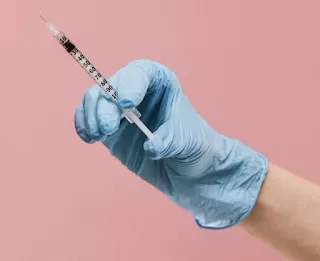World Malaria Day 2025: A Global Call to End Malaria

Covid-19 vaccine has saved more than 3.8 million lives in US.. Study says
On April 25, 2025, the world unites to observe World Malaria Day, a pivotal moment to reflect on the progress made in the fight against malaria and to rally for renewed action to eliminate this preventable and treatable disease. This year’s theme, “Malaria Ends With Us: Reinvest, Reimagine, Reignite,” underscores the urgency of collective responsibility, innovative strategies, and sustained investment to achieve a malaria-free world. Led by the World Health Organization (WHO) and the RBM Partnership to End Malaria, the 2025 campaign galvanizes governments, communities, researchers, and advocates to address ongoing challenges and accelerate progress toward global malaria elimination.
The Global Malaria Burden: Progress and Challenges
Malaria, a mosquito-borne disease caused by Plasmodium parasites, remains one of the world’s most pressing public health challenges. According to the WHO’s 2024 World Malaria Report, an estimated 263 million malaria cases and 597,000 deaths occurred globally in 2023, with the WHO African Region accounting for 94% of cases and 95% of deaths. Children under five and pregnant women are disproportionately affected, with a life lost to malaria every minute.
Since 2000, global efforts have yielded remarkable results:
- 2.2 billion malaria cases and 12.7 million deaths have been averted.
- 47 of 83 malaria-endemic countries reported fewer than 10,000 cases in 2023, a key milestone toward elimination.
- 45 countries and territories have been certified malaria-free by the WHO.
However, progress has plateaued in recent years due to a confluence of challenges:
- Funding Gaps: In 2023, global investments in malaria control reached only $4 billion, far short of the $8.3 billion needed annually to meet the 2030 targets of the WHO Global Malaria Strategy.
- Climate Change: Extreme weather events, such as floods and cyclones, create breeding grounds for mosquitoes, exacerbating malaria transmission in vulnerable regions.
- Insecticide and Drug Resistance: Growing resistance to insecticides and antimalarial drugs threatens the efficacy of existing tools.
- Conflict and Displacement: Humanitarian crises disrupt healthcare access and vector control efforts, increasing malaria risk in affected areas.
- Health Inequities: Marginalized communities, particularly in sub-Saharan Africa, face barriers to accessing diagnostics, treatment, and prevention measures.
These challenges underscore the need for a reinvigorated global response, as emphasized by the 2025 World Malaria Day theme.
The 2025 Theme: Reinvest, Reimagine, Reignite
The theme “Malaria Ends With Us: Reinvest, Reimagine, Reignite” serves as a clarion call to address the stalled progress and chart a path toward malaria elimination. Each pillar of the theme outlines a critical area of focus:
Reinvest: Closing the Funding Gap
Sustained and increased investment is essential to maintain gains and scale up interventions. The 2025 campaign urges governments, donors, and the private sector to prioritize malaria funding, particularly through key mechanisms like the Global Fund to Fight AIDS, Tuberculosis and Malaria and Gavi, the Vaccine Alliance, both of which face critical replenishment cycles in 2025. Additional funding is needed to:
- Expand access to proven tools, such as insecticide-treated bed nets and artemisinin-based combination therapies (ACTs).
- Support the rollout of malaria vaccines and other innovative interventions.
- Strengthen health systems in endemic countries to ensure equitable access to care.
The campaign also highlights the economic case for investment: every dollar spent on malaria control generates an estimated $40 in economic returns through improved health and productivity.
Reimagine: Innovating for Impact
Innovation is at the heart of the fight against malaria. The 2025 campaign celebrates recent breakthroughs and calls for accelerated development and deployment of new tools. Key innovations include:
- Malaria Vaccines: The RTS,S/AS01 and R21/Matrix-M vaccines have shown promise in reducing malaria cases and deaths among children. In 2024, these vaccines reached children in 17 endemic countries, marking a historic milestone.
- Dual-Insecticide Nets: These next-generation bed nets, designed to combat insecticide resistance, are being scaled up in high-burden areas.
- New Antimalarial Drugs: Novel treatments, such as tafenoquine, are improving outcomes for patients with Plasmodium vivax malaria.
- Genetically Modified Mosquitoes: Research into gene-drive technologies aims to reduce mosquito populations or render them incapable of transmitting malaria.
The campaign also emphasizes the role of digital tools, such as data analytics and mobile health platforms, in optimizing malaria surveillance and response.
Reignite: Empowering Communities and Countries
Ending malaria requires country-led, community-driven efforts grounded in data and equity. The 2025 campaign calls for:
- Strengthening Health Systems: Investments in training healthcare workers, improving diagnostics, and ensuring supply chains are critical to delivering interventions effectively.
- Community Engagement: Local leaders, volunteers, and youth advocates play a vital role in promoting prevention measures and reducing stigma around malaria.
- Data-Driven Strategies: Enhanced surveillance and real-time data help countries target interventions to high-risk areas and respond to outbreaks swiftly.
The success of programs like Seasonal Malaria Chemoprevention (SMC), which protected 54 million children in 2024, demonstrates the power of tailored, community-based approaches.
Global and Local Events for World Malaria Day 2025
World Malaria Day 2025 will feature a range of events to raise awareness and inspire action. Highlights include:
- Johns Hopkins Malaria Research Institute Symposium: On April 25, 2025, the institute will host “Building Better Mosquitoes” in Baltimore, Maryland, bringing together global researchers to discuss advances in vector control and genetic engineering.
- London School of Hygiene & Tropical Medicine Webinar: This virtual event will explore the intersection of malaria and climate change, featuring experts from endemic regions.
- Community Campaigns: Across Africa, Asia, and the Americas, local organizations will host rallies, health screenings, and educational workshops to promote malaria prevention.
- Social Media Advocacy: The hashtag #WorldMalariaDay will amplify messages of hope and urgency, encouraging individuals to share stories, facts, and calls to action.
The RBM Partnership to End Malaria has released a comprehensive toolkit, available at endmalaria.org, to support organizations and individuals in planning events and spreading the campaign message.
Why World Malaria Day Matters
Malaria is not just a health issue; it is a matter of global equity, economic development, and human rights. The disease disproportionately affects the world’s poorest and most vulnerable populations, perpetuating cycles of poverty and inequality. By investing in malaria control, the global community can save lives, strengthen health systems, and pave the way for sustainable development.
The 2025 campaign reminds us that malaria is a disease we can defeat. With two vaccines now in use, new tools on the horizon, and a growing number of countries approaching elimination, the goal of a malaria-free world is within reach. However, this vision requires collective action—governments must prioritize funding, researchers must push the boundaries of innovation, and communities must lead the charge on the ground.
How You Can Get Involved
World Malaria Day 2025 is an opportunity for everyone to contribute to the fight against malaria. Here are some ways to take action:
- Advocate: Contact policymakers to urge increased funding for malaria programs and support for global health initiatives like the Global Fund and Gavi.
- Educate: Share facts about malaria on social media using #WorldMalariaDay and encourage others to join the campaign.
- Donate: Support organizations like the RBM Partnership, Malaria No More, or local NGOs working to distribute bed nets and provide treatment.
- Participate: Attend or organize World Malaria Day events in your community to raise awareness and inspire action.
Looking Ahead: A Malaria-Free Future
As we mark World Malaria Day 2025, the message is clear: Malaria Ends With Us. The progress made over the past two decades proves that with determination, innovation, and collaboration, we can overcome even the most formidable challenges. By reinvesting in proven strategies, reimagining solutions for a changing world, and reigniting our collective commitment, we can ensure that no child, no family, and no community is left behind in the fight against malaria.
For more information and resources, visit the WHO’s World Malaria Day page at who.int/campaigns/world-malaria-day/2025 or explore the RBM Partnership’s toolkit at endmalaria.org. Together, we can make malaria history.







